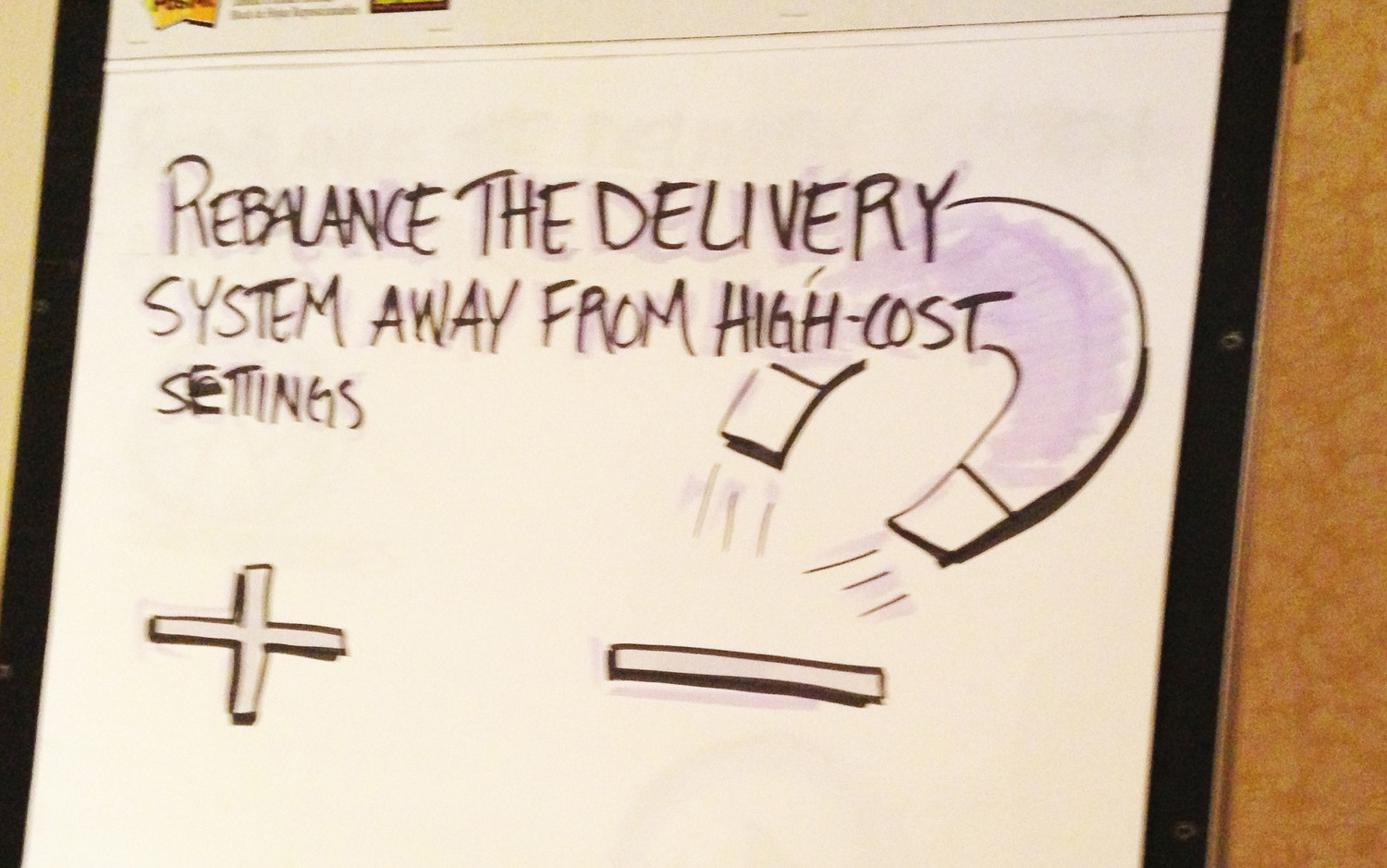Another fine mess we have gotten ourselves into
The failure to file an appeal to a court decision could force the state to pay as much as $24 million to 59 nursing homes, disrupting the current budget process
PROVIDENCE – Remember the Reinvention of Medicaid? It was a signature legislative accomplishment of the first year of the Raimondo administration, enacted into law by the R.I. General Assembly as the Reinventing Medicaid Act of 2015.
One of the key provisions of the law enacted to help pay for the reinvention of the state Medicaid program was a 2 percent rate reduction in Medicaid nursing home rates: “Notwithstanding any law to the contrary, for the twelve [12] month period beginning July 1, 2015, Medicaid payment rates for nursing facilities established pursuant to this section shall not exceed ninety eight percent [98 percent] of the rates in effect on April 1, 2015.”
The problem began in 2016, when after the 12 months had ended, the Raimondo administration, apparently for budgetary reasons, decided to keep the rate cut in place.
[And, for two years, no one in the R.I. General Assembly, apparently, asked too many questions about the continued Medicaid rate cut for skilled nursing facilities, adopting a kind of “don’t ask, don’t tell” approach during budget negotiations.]
The skilled nursing facilities then challenged that interpretation of the law, but their challenge was rejected in administrative hearings held by the R.I. Executive Office of Health and Human Services.
Having exhausted potential remedies through administrative hearings, the nursing facilities then sued in Superior Court, and in a decision by Judge Jeffrey Lanphear issued on April 9, the court found that the law’s language was “clear and unambiguous” – the rate cut was supposed to come to an end after 12 months. [See link below to Judge Lanphear’s decision.]
As a result, as much as $24 million in retroactive payments could now be due to the skilled nursing facilities operating in Rhode Island.
But wait, there’s more
The story took an unexpected twist because the staff attorney in charge of the case representing R.I. EOHHS, Gregory Hazian, allegedly failed to file an appeal in time in response to the decision. He and another lawyer have been placed on administrative leave while the state conducts an investigation, according to a story in The Providence Journal.
It gets worse. Hazian had apparently been removed from the Master Roll of Attorneys by the Rhode Island Supreme Court on or about Jan. 3, 2018, according to court filings by the state, as reported by The Providence Journal. Further, Hazian apparently did not inform anyone at R.I. EOHHS about the April 9 decision, according to court filings, once again as reported by The Providence Journal.
In response, the state has filed what is known as an “untimely appeal” with the Superior Court, asking for a stay of the decision.
What is at stake?
The court can agree to hear the state’s appeal, or it can reject the appeal. Even if the court decides to hear the appeal, there is no guarantee that the state will win the case on the merits, given the strong wording of Judge Lanphear’s decision. The R.I. General Assembly is now faced with a potential $24 million additional shortfall in its spending budget for next year, and the question is: what cuts will be made to which programs to pay the money owed to nursing homes?
The disliked fact is that the Reinvention of Medicaid did not solve the budgetary problems associated with increased Medicaid spending, the biggest factor being increasing medical costs for an aging population of Rhode Island residents who are more susceptible to the need for more health care services as their chronic diseases flower and peak. That is a demographic trend that cannot be erased through budgetary sleight of hand.
The long-term care infrastructure in Rhode Island is already reeling from the disastrous rollout of the Unified Health Infrastructure Project, resulting in many smaller local skilled nursing facilities being acquired by larger, out-of-state chains.
In an election year, no doubt there will be plenty of political finger-pointing, but the more difficult question for candidates running for Governor to answer are these: Are you willing to invest more money to pay for health care services for Rhode Island residents in skilled nursing facilities? If not, what should happen for patients who can no longer afford to be in skilled nursing facilities? And, does the law need to be changed regarding Rhode Island residents who disperse their assets so that the assets cannot be accessed when Medicaid becomes the payer for their care in skilled nursing facilities?






